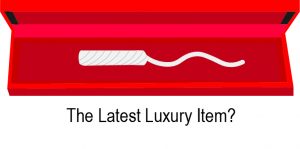TACKLING THE TAMPON TAX
Did you know that you are taxed for your period? Women across the country fed up with unfair tax

As a woman, I can say with utter conviction that menstruation is anything but a privilege. In fact, I have never known one woman in my lifetime who considers her period a “luxury”. Legislators (who, it should be noted, are comprised of approximately 75% men, according to a 2016 data consensus) across America apparently disagree.
In 37 states including Idaho, tampons are taxed as luxury items, while other items, generally such as groceries, medical supplies, and even condoms, are taxed as necessities, meaning that they are exempt from taxation. While there is no specific law in these states mandating the taxation of feminine products (i.e. tampons, pads, and other products), these products are not classified as necessities, subjecting them to the state’s standard tax codes with no reduction or exemption.
This taxation, coined the Tampon Tax, has garnered some national attention as state legislatures nationwide begin making steps towards abolishing it. Feminine hygiene products are already exempt from sales taxes in Minnesota, Pennsylvania, New Jersey, New York, Maryland, Illinois, Connecticut, and Massachusetts. Five other states have no sales taxes. And the U.S. isn’t the only country standing up to this gender-prejudiced tax: Worldwide, campaigns to eliminate it are being launched, and in 2015, Canada successfully scrapped the tampon tax. However, in the state of Idaho, no legislative action to abolish it has been brought up in the state government.
Inarguably, women should not be penalized for their anatomy. Not only is the injustice of the tax staggering, but it’s implications are as well. Women pay, on average, seven dollars a month for feminine products, which makes a significant difference in the budgets of impoverished women. According to the Idaho Department of Health and Welfare, tampons are not one of the provisions of food stamps either, making them even more difficult to get for Idaho women living in poverty.
Being high school students, most young women of SHS probably do not pay for their own feminine products yet, and thus, do not feel the effects of the tax. However, within a few years, we will be away from home and these necessities will be ours to pay for. Personally, the idea of paying a tax on the bodily functions I cannot stop feels incredibly unfair and unjust.
If you want to help bring awareness to this issue, the GEM Club (previously known as Fifty Point Eight Club) has been discussing the issue and planning a tampon drive to benefit women of Sandpoint in need of feminine products.

McCalee Cain is a senior and it is her third year on staff. She is the Editor-in-Chief.










